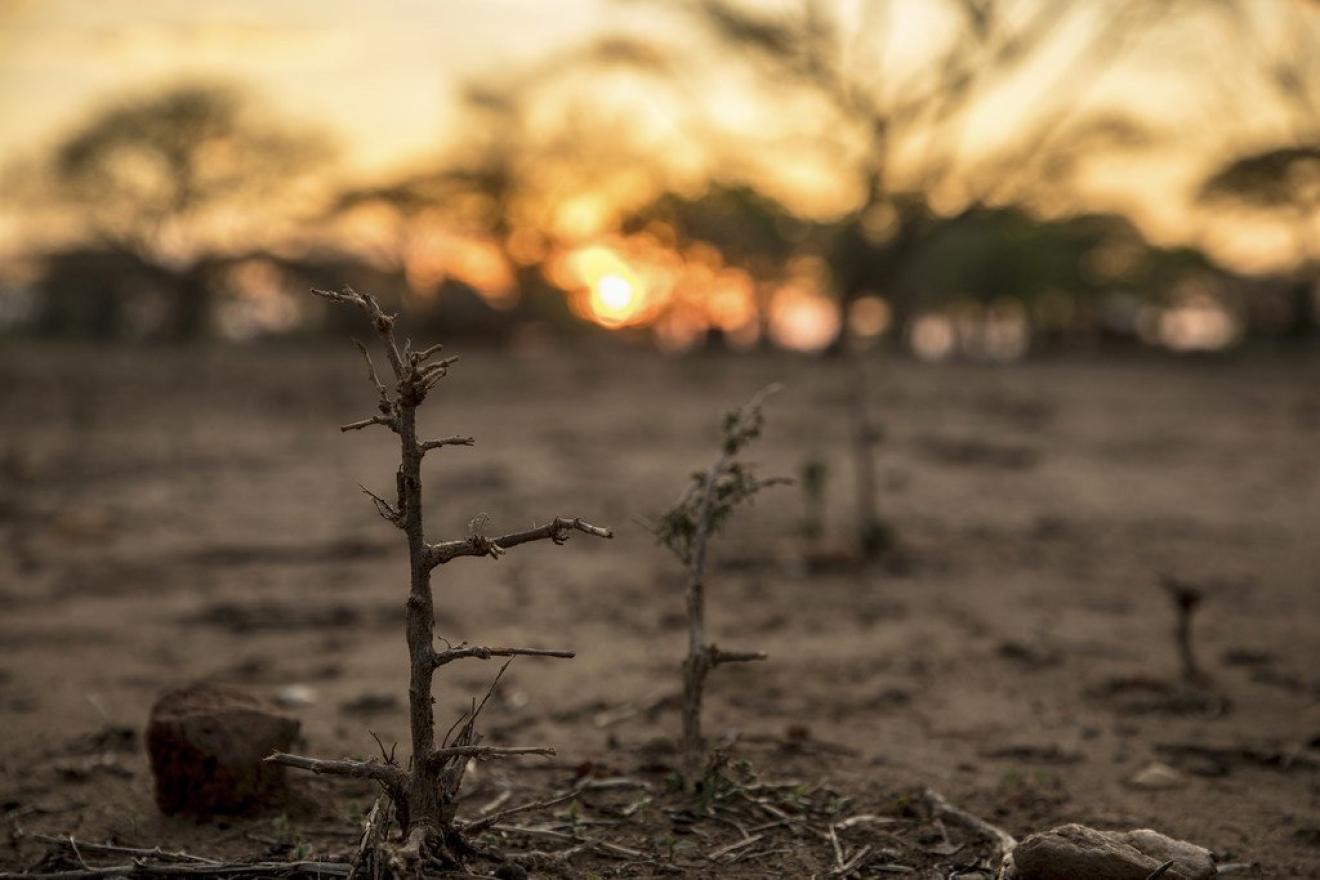Climate Change is the defining issue of our time and we are at a defining moment. From shifting weather patterns that threaten food production, to rising sea levels that increase the risk of catastrophic flooding, the impacts of climate change are global in scope and unprecedented in scale. Without drastic action today, adapting to these impacts in the future will be more difficult and costly.
The Human Fingerprint on Greenhouse Gases
Greenhouse gases occur naturally and are essential to the survival of humans and millions of other living things, by keeping some of the sun’s warmth from reflecting back into space and making Earth livable. But after more than a century and a half of industrialization, deforestation, and large scale agriculture, quantities of greenhouse gases in the atmosphere have risen to record levels not seen in three million years. As populations, economies and standards of living grow, so does the cumulative level of greenhouse gas (GHGs) emissions.
There are some basic well-established scientific links:
-The concentration of GHGs in the earth’s atmosphere is directly linked to the average global temperature on Earth;
-The concentration has been rising steadily, and mean global temperatures along with it, since the time of the Industrial Revolution;
-The most abundant GHG, accounting for about two-thirds of GHGs, carbon dioxide (CO2), is largely the product of burning fossil fuels.
The UN Intergovernmental Panel on Climate Change (IPCC)
The Intergovernmental Panel on Climate Change (IPCC) was set up by the World Meteorological Organization (WMO) and United Nations Environment to provide an objective source of scientific information.
Sixth Assessment Report
The IPCC’s Sixth Assessment Report, to be released in March 2023, provides an overview of the state of knowledge on the science of climate change, emphasizing new results since the publication of the Fifth Assessment Report in 2014. It is based on the reports of the three Working Groups of the IPCC – on the physical science; impacts, adaptation and vulnerability; and mitigation – as well as on the three Special Reports on Global Warming of 1.5°C, on Climate Change and Land, and on the Ocean and the Cryosphere in a Changing Climate.
What we know based on the IPCC reports:
- It is unequivocal that human influence has warmed the atmosphere, ocean and land. Widespread and rapid changes in the atmosphere, ocean, cryosphere and biosphere have occurred.
- The scale of recent changes across the climate system as a whole – and the present state of many aspects of the climate system – are unprecedented over many centuries to many thousands of years.
- Human-induced climate change is already affecting many weather and climate extremes in every region across the globe. Evidence of observed changes in extremes such as heatwaves, heavy precipitation, droughts, and tropical cyclones, and, in particular, their attribution to human influence, has strengthened since the Fifth Assessment Report.
- Approximately 3.3 to 3.6 billion people live in contexts that are highly vulnerable to climate change.
- Vulnerability of ecosystems and people to climate change differs substantially among and within regions.
- If global warming transiently exceeds 1.5°C in the coming decades or later, then many human and natural systems will face additional severe risks, compared to remaining below 1.5°C.
- Reducing GHG emissions across the full energy sector requires major transitions, including a substantial reduction in overall fossil fuel use, the deployment of low-emission energy sources, switching to alternative energy carriers, and energy efficiency and conservation.
Global Warming of 1.5°C
In October 2018 the IPCC issued a special report on the impacts of global warming of 1.5°C, finding that limiting global warming to 1.5°C would require rapid, far-reaching and unprecedented changes in all aspects of society. With clear benefits to people and natural ecosystems, the report found that limiting global warming to 1.5°C compared to 2°C could go hand in hand with ensuring a more sustainable and equitable society. While previous estimates focused on estimating the damage if average temperatures were to rise by 2°C, this report shows that many of the adverse impacts of climate change will come at the 1.5°C mark.
The report also highlights a number of climate change impacts that could be avoided by limiting global warming to 1.5ºC compared to 2ºC, or more. For instance, by 2100, global sea level rise would be 10 cm lower with global warming of 1.5°C compared with 2°C. The likelihood of an Arctic Ocean free of sea ice in summer would be once per century with global warming of 1.5°C, compared with at least once per decade with 2°C. Coral reefs would decline by 70-90 percent with global warming of 1.5°C, whereas virtually all (> 99 percent) would be lost with 2ºC.
The report finds that limiting global warming to 1.5°C would require “rapid and far-reaching” transitions in land, energy, industry, buildings, transport, and cities. Global net human-caused emissions of carbon dioxide (CO2) would need to fall by about 45 percent from 2010 levels by 2030, reaching ‘net zero’ around 2050. This means that any remaining emissions would need to be balanced by removing CO2 from the air.
United Nations legal instruments
United Nations Framework Convention on Climate Change
The UN family is at the forefront of the effort to save our planet. In 1992, its “Earth Summit” produced the United Nations Framework Convention on Climate Change (UNFCCC) as a first step in addressing the climate change problem. Today, it has near-universal membership. The 197 countries that have ratified the Convention are Parties to the Convention. The ultimate aim of the Convention is to prevent “dangerous” human interference with the climate system.
Kyoto Protocol
By 1995, countries launched negotiations to strengthen the global response to climate change, and, two years later, adopted the Kyoto Protocol. The Kyoto Protocol legally binds developed country Parties to emission reduction targets. The Protocol’s first commitment period started in 2008 and ended in 2012. The second commitment period began on 1 January 2013 and ended in 2020. There are now 198 Parties to the Convention and 192 Parties to the Kyoto Protocol
Source: United Nations.



































